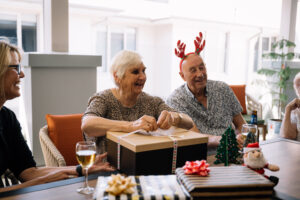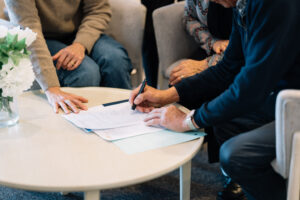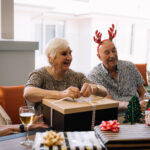Stroke is one of the most significant health challenges among the elderly in Australia, particularly women. It is a leading killer and cause of permanent disability.
A stroke occurs when the blood supply to the brain is interrupted. Blood carries oxygen and nutrients to the brain, so when the brain is deprived of these, cells may die and brain damage can occur. There are different types of strokes. Some strokes are caused by a blockage in the artery – these are ischaemic strokes, while those caused by a burst or bleeding artery are called haemorrhagic strokes. Whatever the cause, time is of the essence so it’s important to act quickly to get medical help.
It can be difficult to recognise the signs of stroke but if you suspect that someone might be having one, call 000 immediately. Let the operator know that you think you or your loved one is having a stroke.
According to the Stroke Foundation of Australia, correct protocol when you suspect stroke is to think F.A.S.T.
F – Is the face drooping?
A – Can the arms be raised?
S – Is speech slurred or difficult to understand?
T – Time is critical so call 000 straight away and take note of the time that you first noticed symptoms.
Most people will feel very sleepy straight after a stroke occurs but it’s important to keep the person awake until after the ambulance arrives, so any necessary medication can be administered quickly.
Do not give the person any food, drink or medications. Stroke can impact a person’s ability to swallow, so play it safe and avoid giving anything until medical help has arrived.
If you suspect your loved one has had a stroke do not let them drive even if they appear to be fine. Symptoms may worsen and significantly impair their ability to drive. It is much safer to travel to hospital by ambulance, and ensure you or your loved one is receiving the necessary treatment, in the capable hands of trained medical staff.
At Homestyle we support many residents who have survived a stroke. For more information about stroke please visit the Stroke Foundation. If you would like to arrange a visit to one of our homes click here.






